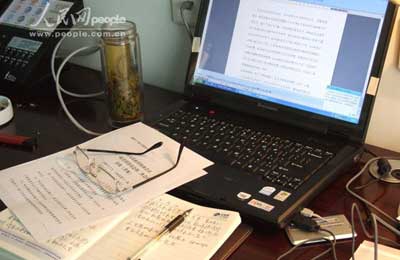by Chen Fang
With the financial crisis hitting people's pockets, there have been calls to cut the cost of China's annual parliamentary meetings, the Chinese People's Political Consultative Conference (CPPCC) and the National People's Congress (NPC). And people will also be casting a critical eye at the achievements of the two sessions, China Youth Daily reports.
 |
|
Printing and delivery of paper documents for this year's parliamentary sessions has been replaced as far as possible by the sending of electronic versions to members' computers. |
This year's meetings have been shortened to only 9 days while for the past 5 to 6 years sessions of the CPPCC have typically lasted up to 12 days. Board and lodging standards for NPC deputies and CPPCC members have also been pared down to reduce costs.
Cost-cutting is all well and good, but how should we measure the outcome and benefits of the parliamentary sessions? After all, what people really care about is whether the end result justifies the outlay.
Some of the proposals submitted to the two sessions are frankly ridiculous. One deputy called for "post-bachelor" university courses to be set up to ease the problem of graduate unemployment. And a group of deputies from Henan Province suggested cock fighting should be legalized in order to stimulate the economy. Clearly such nonsensical suggestions have no value whatsoever.
There is a saying favored by some officials: "Count the cost before the meeting, pay attention to efficiency during the meeting, and focus on results after the meeting." This can be applied to any meeting. The 2009 "two sessions" have started with frugality, but we also need to focus on the actual results of the meetings.
(China.org.cn translated by Xiang Bin, March 3, 2009)